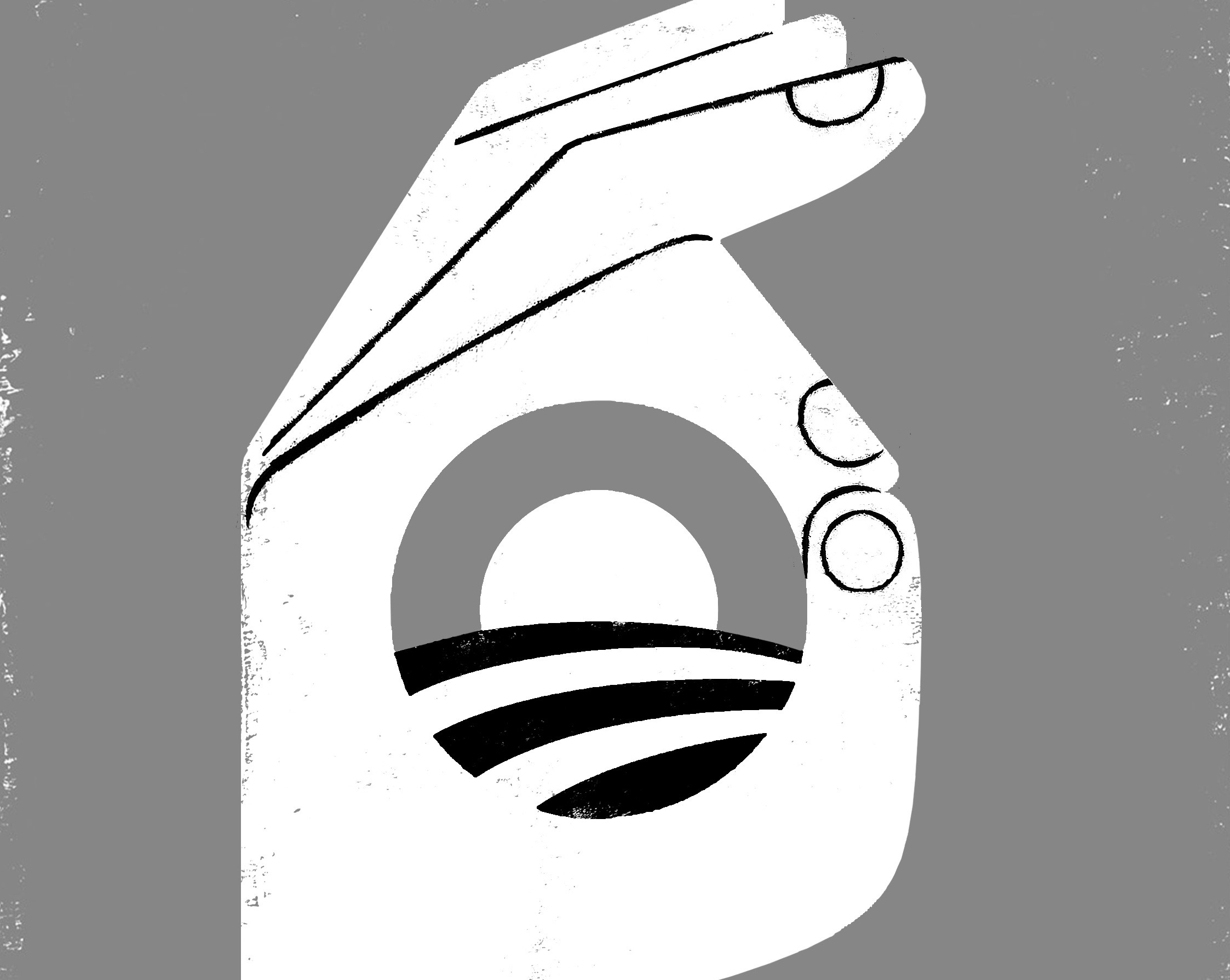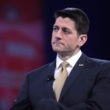Barack Obama goes into the 2014 midterm elections with negatives so high that he is unwelcome by Democratic candidates in states where control of the Senate will be decided. In Alaska, Senator Mark Begich is promising to serve as a check on Obama’s policies in Washington. In Louisiana, North Carolina, Arkansas, Georgia and Kentucky, incumbent Democratic senators and candidates are running away from the president.
Caught between the unmet expectations of the left and the animosity of the extreme right, the president is defined by two narratives that work against a dispassionate appraisal of his record. In particular, a domestic record that will likely play a decisive role in the midterm elections.
Is Obama deserving of disapproval numbers that range between 50 and 55 percent?
Presidential historian Douglas Brinkley has suggested a different criterion by which to evaluate the president.
Brinkley describes Obama as a new type of 21st-century Democratic chief executive: a curatorial president. Obama, he writes, is a “progressive firewall” standing between an energized right-wing Republican Party and the legacy of the New Deal, the Fair Deal, the New Frontier and the Great Society.
FDR, Brinkley writes, redefined the American presidency as an institution capable of improving the lives of ordinary citizens. Social Security, the right to collective bargaining, Wall Street regulation and government-insured bank accounts are New Deal legacies that define the country we know today.
Every American president since FDR has used tax revenue to fund some grand endeavor: Truman funding the Marshall Plan; Eisenhower creating the Interstate Highway System; JFK launching the space program; Lyndon Johnson getting Medicaid through Congress; Richard Nixon establishing the EPA; and Jimmy Carter creating the Departments of Energy and Education.
The creative use of taxation ended with Ronald Reagan, who considered these essential programs symptoms of a bloated and malignant government, and campaigned against the very notion of taxation.
Republican John Boehner’s criticism of the 2009 stimulus package helped fuel an anti-spending, anti-taxation, nativist, racist movement of white conservatives.
As Brinkley reads it, Obama is the president the historical moment requires: the curator-in-chief.
As long as he is president, Social Security will not be privatized (as proposed by Rep. Paul Ryan); Medicaid will not be turned into a voucher program (per the Ryan budget that the House passed in 2008); the Corporation for Public Broadcasting and National Public Radio will not be defunded (a John Boehner initiative); and the EPA will not be abolished (as proposed by Senators Richard Burr, John McCain, Mike Enzi, John Thune and Roy Blunt).
The role squares with Obama’s character: a deliberative (perhaps excessively deliberative) chief executive deciding where to draw the line on domestic programs he considers essential to the lives of ordinary Americans.
There is a corollary argument.
That is, it was Obama’s success in advancing New Deal-Great Society programs that antagonized right-wing Republicans who questioned the legitimacy of his presidency from its inception.
Financial stimulus, health care reform, an auto-industry bailout and Wall Street reform (even if flawed) might be all a Democratic president can get through a House of Representatives controlled by an inflexible opposition party.
Obama’s modest progressive legislative agenda ignited a populist fury on the right, which came to be fueled by corporate donors who recognized the utility of Tea Party activists and Christian extremists carrying pitchforks.
Advancing the New Deal
The Republican backlash began at the beginning.
Obama’s first big legislative victory, when Democrats held majorities in both houses, came with breathtaking speed. On February 17, 2009, four weeks after his inauguration, with the economy sliding into depression, Obama signed the $787-billion American Recovery and Reinvestment Act.
It was the newly-elected president’s programmatic response to an economic catastrophe that began in 2007 and showed no sign of abating.
In two years, Americans had lost $16.4 trillion in personal wealth.
In 2008, 3.8 million private-sector jobs had disappeared.
The week before Congress voted on the stimulus bill, the Labor Department reported that 598,000 jobs had been lost in January and the Dow Jones industrial average lost 439.18 points, with a Friday close at 7,850,41.
Four months earlier, 91 Republican representatives and 33 Republican senators had joined with Democrats to pass George W. Bush’s $700-billion bank bailout legislation.
Yet in February 2009, 176 Republican representatives—every member of the then-minority party in the House—voted against Barack Obama’s attempt to breathe some life into a collapsing economy. Three moderate Republicans voted with 55 Democrats and two independents to pass the bill in the Senate.
The vote on the stimulus bill defined a moment when a party that had been repudiated at the polls resolved to launch a campaign to obstruct a president who had prevailed over his Republican opponent by 365-173 electoral votes.
During the House debate on the stimulus bill, then-Minority Leader John Boehner—who had helped round up enough Republicans to pass the Bush bank bailout—theatrically dropped a 1,073-page printout of the bill onto the floor and claimed that Democrats had not even read the legislation. It was not a stimulus bill, Boehner said. It was a spending bill.
To accommodate Republicans in Congress, Obama conceded that more than one third of the stimulus would be tax reductions, a gesture that got him nothing in return. The minority leader’s criticism of the stimulus package, in fact, helped fuel an anti-spending, anti-taxation, nativist and racist movement of white conservatives.
Ten days after Obama signed the bill into law, Fox’s Greta Van Susteren was reporting on (and flogging) the growing movement:
“Tea Party protests are erupting across the country. Angry taxpayers, or at least some of them, are taking to the streets in the spirit of the Boston Tea Party. People are protesting President Obama’s massive $787 billion stimulus budget and his $3.55 trillion budget and a federal government that has been ballooning by the day since the president took office.”
Obama further antagonized conservatives with an unpopular $62-billion bailout of GM and Chrysler. The Bush administration had loaned the companies $13.4 billion. Obama’s program to resurrect the ailing auto manufacturers was more ambitious. In exchange for the investment of tax dollars, the government took an equity position in GM, the president pushed Chrysler into a merger with Fiat, and a Treasury Department auto-industry task force oversaw their restructuring. Obama even demanded the resignation of GM’s CEO.
No President Has Faced Such Nihilism
The right-wing movement turned white-hot in the summer of 2009 after the president conceded that Senators Max Baucus (D-MT) and Chuck Grassley (R-IA) should have the time they deemed necessary to negotiate a health care bill that would be acceptable to some Republicans in the Senate.
Baucus was chair of the Finance Committee. Grassley, the ranking Republican, strung the talks through the summer congressional recess while the president remained above the fray, waiting for a “grand bargain” Grassley never intended to deliver.
Grassley even fueled the right-wing meme about “health care rationing” that would have led, he said, to “pulling the plug on Grandma.” And he openly promised to raise money for pressure groups working against health care reform. The Iowa senator created the space for the extreme right to take control of the narrative and to define the president’s signature piece of legislation.
Over the summer of 2009, they did.
Death panels, a socialist assault on personal freedom, euthanizing mentally retarded children and the elderly—these were alleged again and again in angry choreographed “town hall” meetings that provided content for the 24-hour cable news cycle.
In the crucible of these televised events, the Tea Party came into its own.
To Grover Norquist, the anti-tax extremist who holds congressional Republicans hostage with a published list of signatories to a no-new-taxes pledge, the Tea Party was the culmination of the conservative takeover in the GOP. Barry Goldwater began the revolution with his argument for small government and private enterprise. Ronald Reagan shut down taxation (a myth; this is Norquist’s version). The Tea Party choked off government spending.
Barack Obama is refashioning the presidency to deal with an intransigent Republican House of Representatives, moving beyond curator-in-chief to domestic unilateralist-in-chief.
While it has thus far been unsuccessful in electing its own candidates (the Mississippi Senate race was its latest failure), the Tea Party has turned congressional Republicans into what conservative scholar Norman Ornstein and his centrist coauthor Thomas Mann describe as an “insurgent outlier in American politics … ideologically extreme; scornful of compromise; unmoved by conventional understanding of facts, evidence and science; and dismissive of the legitimacy of its political opposition.”
The 2010 elections delivered the U.S. House to the insurgent outliers. No modern president has been confronted by an opposition party that is nihilistic in its determination to thwart virtually every initiative proposed by the executive branch.
Going It Alone
Obama is also refashioning the presidency to deal with an intransigent House of Representatives, moving beyond curator-in-chief to domestic unilateralist-in-chief.
“We’re not just going to be waiting for legislation in order to make sure that we’re providing Americans the kind of help they need,” Obama said in January 2014. “I’ve got a pen. And I’ve got a phone.”
Although Obama was serving notice to the Republican House when he threatened to govern with his pen, he had already put in place a number of measures that antagonized conservatives.
Most notably, his Deferred Action Childhood Arrivals (DACA) executive order issued in August 2012. The immigration reform measure allowed 544,527 undocumented residents who arrived as minors prior to 2012 to apply for temporary residency status. In other words, to come out of the shadows. (In July, the House passed a bill that would require the deportation of all 12 million undocumented aliens, including the half-million “dreamers” provided temporary legal status by Obama’s DACA order.)
House Republicans are preparing to sue the president for executive overreach, but not because of the number of executive actions he has issued. At 181, he trails all modern presidents. Ronald Reagan, beatified by conservatives for his rhetorical dedication to limited government, issued 381 executive orders.
And Advancing Social Justice
It is the intent of Obama’s executive initiatives that has inflamed the Republicans. They include:
• Providing legal status for more than half a million undocumented residents brought to the country as minors by their parents
• A minimum wage of $10.10 an hour for anyone working for federal contractors
• Blocking companies with a history of workplace violations from receiving federal contracts
• Adding sexual orientation and gender-identity provisions to existing federal workforce protections
• Allowing debtors paying off college loans to cap payments at 10 percent of their annual income
• EPA and Transportation Department rules that will increase fuel economy in cars and light trucks to 54.5 miles per gallon by 2025.
On a larger scale, Obama is bypassing a Congress that refuses to address greenhouse gas emissions that are heating up the planet. He has turned to the rule-making process provided in the Clean Air Act; the EPA has already released a 600-page draft of rules that will mandate a 30-percent reduction of carbon dioxide emissions by the year 2030.
The most sweeping environmental policy since LBJ signed the Clean Air Act is in the process of finalization. The rules will impose strict caps on the emissions of 600 existing coal-fired power plants that produce one-third of the country’s greenhouse gasses.
Queued up for release after November’s election is an immigration-reform order, perhaps normalization of the status of undocumented residents whose children are American citizens, which could affect up to an additional five million immigrants.
Except for the ambitious EPA rules and immigration initiative, governing by executive authority is incremental change at best.
But it is change.
Add it to $787 billion in stimulus invested in roads, bridges, schools, police forces and public school faculties; health care reform that LBJ biographer Robert Caro describes as a major advance in the history of social justice; public investment in an auto industry to avert its collapse; the expansion of Medicaid to 10.5 million uninsured indigent Americans; ending the Bush tax cuts for the wealthy; and fulfilling a campaign promise to wind down two wars.
In a healthy political ecosystem, that is a record that candidates would be running on, rather than disowning.
Lou Dubose is the editor of The Washington Spectator.






